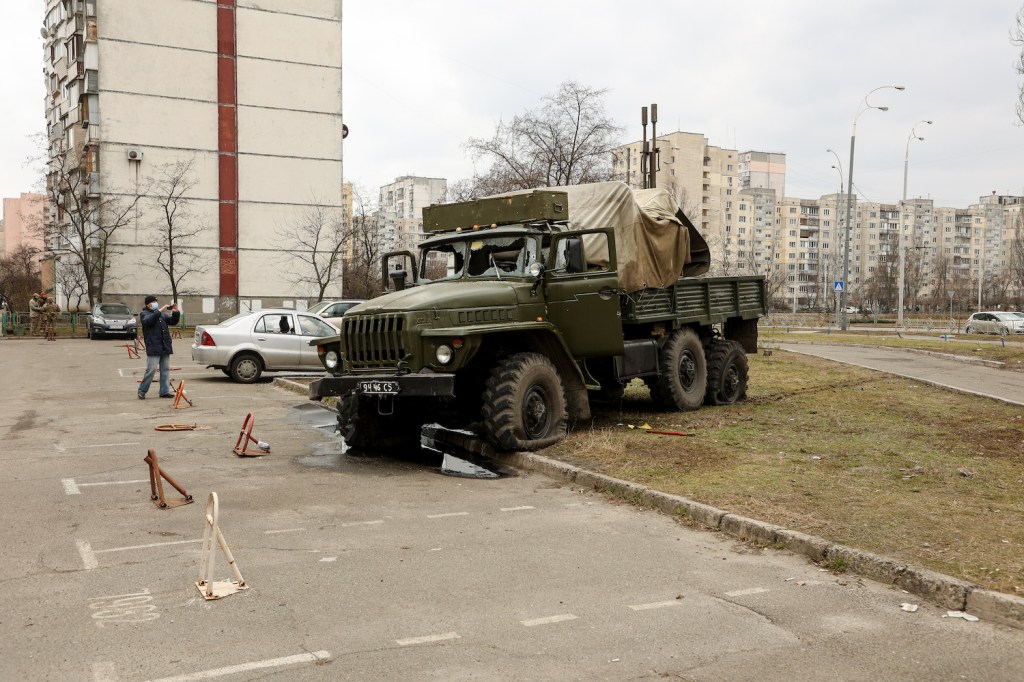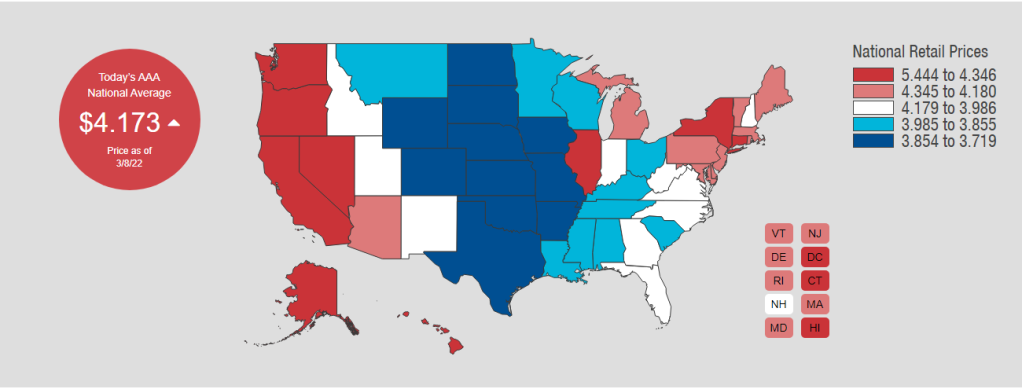
Shell Apologizes For Buying Discounted Russian Oil Last Week
The Russian invasion of Ukraine began a week ago. Since then, the world has watched with bated breath as Russian war machines began the largest land war in Europe since WWII will unfold. As the Ukrainian people fight for their country, many countries and corporations have agreed to support Ukraine by sanctioning the Russian economy into oblivion. However, as late as last week, Shell, the British gasoline company, was still buying discounted Russian oil. This morning, Shell’s CEO has had a change of heart.

Shell agrees to stop buying Russian oil
According to the Washington Post, Shell paused its operations in Russia along with BP and ExxonMobil. Before this morning, Shell was still “spot” buying Russian crude oil. This is because Russia was selling its crude oil at a massive discount. However, as of this morning, Shell’s CEO issued an apology for continuing to support the Russian oil business.
“As an immediate first step, the company will stop all spot purchases of Russian crude oil,” the London-based company said in a statement. “It will also shut its service stations, aviation fuels, and lubricants operations in Russia.”
Ben van Beurden, Shell’s CEO, asked for forgiveness for buying the Russian oil last week. In efforts to turn the heat down after a week of intense backlash toward Shell, Beurden agreed to “commit profits from the limited, remaining amounts of Russian oil we will process to a dedicated fund” for humanitarian aid for the crisis in Ukraine.
“We are acutely aware that our decision last week to purchase a cargo of Russian crude oil to be refined into products like petrol and diesel … was not the right one, and we are sorry,” van Beurden said in a statement.
Is Russia causing gas prices to go up?

After unprovoked Russian forces attacked Ukraine last week, many major world powers and companies called for sanctions and embargos against Russia. The private sector embargo also made waves in the Russian economy and ours. We see all too well how relying on unstable nations for something so key to our infrastructure, like gasoline. We got a little taste of this with the Taliban, too.
The U.S. National average price for a gallon of gas hit $4.17 this week. According to the AAA Gas Prices website, this is the highest average gas price we’ve seen since the company started tracking them in 2000. Although Shell ultimately honored the oil embargo, this will likely deal another blow to the Russian economy and our ever-increasing gas prices.
Despite BP’s early adoption to suspend business in Russia, the company’s spokesperson isn’t being overly bold with the language used around buying Russian oil in the future. The spokesperson said BP “will continue to meet existing contractual obligations subject to meeting sanctions, security, and shipping requirements and where it is safe to do so.”
Will the Russian Sanctions work?

According to the New York Times, Russia isn’t the world’s largest oil supplier by any means, but the country does supply 12 percent of the world’s oil. Although the sanctions and embargos are important, we can’t put them in place without getting slapped by the recoil a little.
Europe is really feeling the sting. This week, Russia threatened to cut off Europe’s gas, which would force the price of oil up to $300 a barrel. While President Biden pushes for more global support by rejecting Russian oil, European countries are understandably more hesitant.
Thankfully Russia isn’t the only game in town. More western nations, including the US, have turned to Iran and Venezuela to negotiate deals to get their oil to market. This war and/or its effects will likely tarry on for some time. The interconnectedness of Russian oil in the global market makes them a tough adversary.



